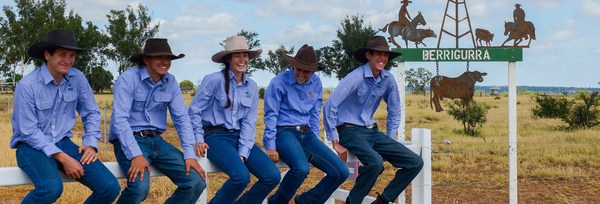By Jeremy Sollars
The Queensland rural sector has reacted with anger to a Palaszczuk Government decision to close Queensland’s Agricultural Training Colleges at Longreach and Emerald.
State Agriculture Minister Mark Furner announced last week the Colleges would cease operating at the end of 2019, citing low enrolments as the chief reason.
But with typical political spin, the minister said the government was “investing more than $30 million to modernise and reinvigorate vocational education, training and skilling in the state’s central west”.
“An independent review of current vocational education and training by Professor Peter Coaldrake found demand for traditional agricultural industry training has been declining for years and more flexible options are needed,” Mr Furner said.
“On the review’s advice, the Queensland Agricultural Training Colleges will cease operating at the end of 2019, with a transition to more modern, cost-effective training.”
Mr Furner said private training providers would be able to fill the gap left by the Longreach and Emerald Colleges, but many in the rural sector are not convinced.
The minister said the decision to close QATC was “not taken lightly, but enrolments had been consistently falling for years despite significant government support”.
“Agricultural employers have been sourcing more flexible training options, and enrolments have fallen well beyond the point where the QATC was viable,” Mr Furner said.
“We have maintained the QATC Emerald and Longreach colleges with significant funding for years, but they are well past the point where they are sustainable.
“Numbers of students have reached unsustainably low levels across Emerald and Longreach campuses of QATC leaving only nine students at Longreach and seven students at Emerald campuses to graduate in 2019.
“In the Central West region alone there are five training providers operating within the region who offer agriculture training similar to that provided by QATC.
“An additional 11 training providers offer training in a range of industry sectors from hospitality and construction to mining and aged care.
“The agricultural sector and the jobs market in these regions have changed massively since the colleges were first established, and the vast bulk of employers are choosing other options.”
Lobby groups including AgForce and even the Queensland Resources Council – which represents the mining industry – have insisted the government should review its decision.
(SUBHEAD)
Facilities, knowledge are key
Warwick cattlewoman Emma Thompson completed her studies in agriculture and agribusiness while living at the Emerald College for several years from 2011, before moving to business management studies at Melbourne’s Swinburne University of Technology.
Emma – principal of Warwick’s Auzdown Droughtmaster Stud – says it’s a transition which would not have been possible without the “foundations” laid by her experiences at Emerald, which had between 30 and 40 students during her time there.
She left high school at the end of year 10 after securing a scholarship at Emerald.
Emma this week described the government’s decision as “disappointing”, saying the private providers cited by Mr Furner may not have the same level of facilities as the ‘ag colleges’.
“The colleges have built the foundation for the agricultural industry, teaching and inspiring youth to support one of our country’s most important industries” she told the Free Times.
“The facilities and the knowledgeable staff are just invaluable.
“You have kids who come from the city and those who come from remote stations and they all have something different to offer and have different learning needs.
“There is nowhere else you can learn the basics (of agriculture) in such a controlled and supportive environment – it’s as good as being on a property.
“It’s very hands-on, which is what you need.
“The live-in factor is a huge advantage – I don’t think I would have completed my course without that and without the support of the staff and my peers.
“There are so many past and current students from across the Darling Downs alone who built the foundations of their careers at Emerald and Longreach, where they not only gained their agricultural skills but business skills as well and have gone on to become leaders in rural industries.
“You really have to question where else young people seeking a future in agriculture are going to get access to the same level of staff experience and support, and the same level of facilities.”







